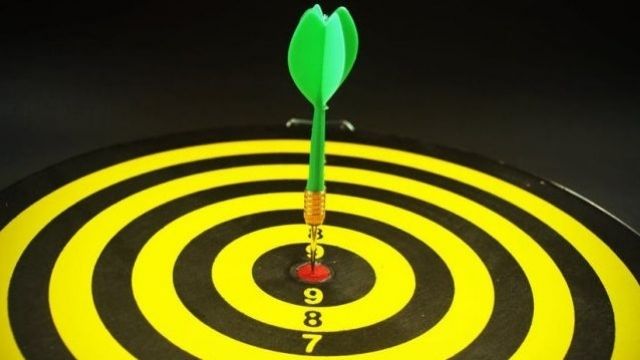Advertiser Disclosure
How To Build Credit
Updated On September 14, 2022
Editorial Note: This content is based solely on the author's opinions and is not provided, approved, endorsed or reviewed by any financial institution or partner.

How to build your credit score
If you want to know how to build credit fast, then you need to understand how to establish credit in the eyes of the three major credit bureaus. The three major credit bureaus are Experian, Equifax and TransUnion.
These credit bureaus will calculate a three-digit credit score for you based on your credit worthiness. The most common credit score is called the FICO credit score, which ranges from 300-850.
The best way to build credit is to understand that FICO scores are based on the following components:
Top Picks For Personal Loans
April 2024
View Details
Overview
Details
Review:
View Details
Overview
Details
Review:
View Details
Overview
Details
View Details
Overview
Details
Review:
View Details
Overview
Details
Disclosures: SoFi | Best Egg | LightStream | Laurel Road | Upgrade
Payment history
Payment history shows all your previous payments and whether you have paid on-time. The best way to build credit is to make on-time payments and avoid late payments.
Credit utilization
Debt utilization is the amount of debt outstanding as a percentage of your credit limit. For example, if you have a $10,000 credit limit and a $5,000 outstanding credit card balance, then your debt utilization is 50%. If you want to know how to increase your credit score, you should maintain a credit utilization below 30%.
Account age
Account age is the average age of all your credit accounts. The best way to build credit is to have multiple credit accounts that are outstanding for a long period of time.
Credit inquiries
Credit inquiries occur whenever you apply for new credit, including a mortgage, student loan, credit card or personal loan. Soft credit inquiries do not impact your credit score, whereas hard credit inquiries do. Therefore, you should try to limit the amount of hard inquiries within a short period of time. The good news is that you can often apply to multiple lenders within a short period of time for the same product such as to refinance student loans, for example, and it will only count as one hard credit inquiry.
Credit mix
Credit mix represent the different types of credit that you have, including student loans, credit cards, mortgages and auto loans.
How To Build Your Credit With Good Financial Habits
If you want to know how to build credit fast, there are several good financial habits to practice. Here are some helpful strategies on how to build your credit:
- Don’t pay interest: Pay your bills on-time 100% of the time.
- Don’t miss payments: Don’t skip any payments, since missed payments can hurt your credit score.
- Avoid opening too many accounts: While having a diverse credit might seem like the best way to build credit, don’t open too many credit accounts at once. Too many new accounts can lower your average account age.
- Increase your account age: Want to know how to increase your credit score? Keep your credit accounts open and active for as long as possible, since average account age is one component of your credit score.
- Check your credit reports: If you want to know to improve your credit score, check your credit reports at least annually to ensure there are no errors are discrepancies.
Best way to build credit
If you want to know how to establish credit, there are several smart strategies:
- Credit cards
- Secured credit cards
- Personal loans
- Student loans
- Authorized signature
- Rent
How to build your credit with credit cards
The best way to build credit can be with a credit card. Credit cards are a form of revolving credit, which means you borrow funds, repay those funds throughout the month and borrow again.
First, you can build credit fast if you make on-time payments. If you want to know how to build credit score with credit cards, then your on-time payments will be reported to the three major credit bureaus. On-time payments signal that you are a responsible borrower who repays debt obligations, which is viewed positively by credit bureaus.
Second, if you keep these credit accounts open and active, you can increase the average age of your credit accounts, which is an important way to how to improve your credit score.
Third, you can build credit faster if you keep credit card utilization low, which means you don’t have to spend your full credit limit each month.
How to establish credit with secured credit cards
Another way how to build credit fast is with secured credit cards. Secured credit cards are credit cards that require a security deposit, which will equal your credit limit. A typical security deposit for secured credit cards can be $200 – $1,000. When you want to know how to build your credit score, you make charge your credit cards and make repayments each month. So long as you repay on-time and in-full, you can work to increase your credit score. With on-time payments, you can build a track record and payment history with your credit card issuer. Your security deposit also gives comfort to the credit card company to show you are a less risky customer.
If you miss a payment or have a late payment, your credit card company will deduct the payment from your security deposit. However, if you pay on time and do not miss payments, you can demonstrate your financial discipline with secured credit cards. Over time, you can increase your credit line and even qualify for credit cards with rewards programs and cash back programs.
How to establish credit with personal loans
Another best way to build credit is through a personal loan. A personal loan is a type of installment loan that is one way how to increase your credit score. With a personal loan, you receive a lump-sum payment of the amount you borrow, and then you pay back the personal loan in monthly installment payments. The typical repayment period for the best personal loans are one to five years, although some personal loan companies may allow for shorter or longer time periods. You can receive funding in as soon as 24 hours.
Personal loans are a popular strategy for credit card consolidation. If you have existing credit card debt, you likely need to know how to improve your credit score. Credit card consolidation can help you raise your credit score fast if you use credit card consolidation as an engine to pay off credit card debt faster. When you consolidate credit card debt, you combine all your existing credit card debt into one loan. This personal loan has a lower interest rate than your credit card debt, which saves you money each month. Your payments are simpler because you can make one monthly payment instead of multiple monthly payments. The goal is to pay off your credit card debt more quickly with personal loan interest rates that are lower than credit card interest rates.
For example, let’s assume that you have $20,000 of credit card debt at 15% interest. Based on your credit score and other factors, let’s assume that you could obtain personal loan interest rates from several personal loan companies for 7%. This means that credit card consolidation could help you cut your interest payments by more than 50%.
How to establish credit with student loans
Another best way to build credit is through student loans.If you have student loans, make sure to do at least two things. First, make your full student loan payments on-time each month. Your student loans are reported to the major credit bureaus, so making on-time payments is the best way to build credit. Second, you can lower your interest rate when you refinance student loans. You can check your new, personalized interest rate for free with no impact to your credit score in just minutes. To be approved for student loan refinancing, you do need to be employed (or have a full-time job offer) and have good to strong credit.If you cannot qualify for student loan refinancing given your credit score, you can get a qualified co-signer such as your parents to help you get approved to refinance student loans.
How to establish credit as an authorized signer
Another way how to establish credit is by becoming an authorized signer on someone else’s credit card. For example, you could become a signer on your parents’ rewards credit card. You can both benefit when you use their rewards credit card because they can earn rewards, and you can build your credit score. When you are an authorized user, your parents are responsible if you don’t repay your debt obligations so make sure to make one-time payment in full each month.
How to establish credit with rent
If you want to know how to build your credit, you can use your rent payments to demonstrate your ability to make regular, on-time payments. Ask your landlord to report your on-time payment history to the major credit bureaus, which is another best way to build credit. You can also ask your utility company to report your payment history as well, which is another way how to raise your credit score.
How to establish credit when you don’t have a credit history
You may not have a credit history, but you still want to know how to establish credit and how to build credit fast. Here are some strategies on how to build your credit score:
- Get a co-signer. If you want to know to build your credit, you need access to credit. Having a qualified co-signer can help you get approved for student loan refinance, credit cards and personal loans, for example.
- Get a student credit card. Student cards are credit cards for college students to help them build credit and gain access to short-term financing. Student credit cards are best for college students with limited or no credit history as well as limited income. Most importantly, the best credit cards for students are a smart way how to establish credit and how to build credit fast.
- Share your payment history. Ask your landlord and utility company to share your on-time payment history with the three major credit bureaus (Experian, Equifax and TransUnion), which can show that you are a responsible borrower.
Frequently asked questions on how to build your credit
What are the major types of credit?
Consumer credit typically appears in four different forms:
Revolving Credit. Revolving credit is a form of open-ended credit, which means you borrow and repay up to a certain credit limit. An example of revolving credit is a credit card. You can carry a balance and repay revolving credit when you choose to, but will incur interest charges if you pay past your balance due date.
Installment Credit. Installment credit is your typical monthly payment loan such as a personal loan, student loan, auto loan or mortgage. With installment credit, you borrow an amount of debt, and repay the loan with interest each month in installments.
Charge Cards. Charge cards are similar to credit cards, but you have to repay the balance in full each month. Therefore, charge cards are different than revolving credit, which allows you to carry a balance and pay interest.
Service Credit. Service credit occurs when someone bills you for goods and services, and you pay each month for the credit extended to you. Examples include your monthly rent, cell phone bill or utilities bill.
Why is it important to build your credit?
Your credit score, in many respects, is as gateway to your financial future. If you want a credit card, personal loan, auto loan, student loan refinance or many other financial products, you need to know how to establish credit and how to build credit fast.
Today, even landlords and employers will check your credit to ensure that you are financially responsible and a trustworthy individual who meets their obligations. It is advantageous for you to have access to credit even if you don’t plan to need it immediately.
Should I borrow money to build credit?
You don’t have to go into debt simply to build credit. In other words, you don’t need to take out a mortgage simply if you want to raise your credit score.
However, you should have a mix of installment loans with fixed monthly payments (such as personal loans) and revolving credit accounts (such as credit cards). Credit bureaus like to see a good credit mix and a history of on-time payments. Therefore, if you can borrow on your credit card and repay the balance in full each month, this is a good way how to improve your credit score.
But, don’t take out a loan and pay interest if you’re trying to find out how to establish credit.
Will having more credit help my credit score?
If you want to know how to build credit fast, the best way to build credit is to be a responsible borrower. When you are a responsible borrower, you may have multiple credit accounts such as student loans, credit cards and personal loans. Credit bureaus reward borrowers who are financially responsible and make on-time monthly payments in full.
When you repay your monthly balance on-time and in-full, you signal to the three major credit bureaus – Experian, Equifax and TransUnion – that you are trustworthy. When you manage your credit responsibly, credit bureaus are more likely to reward you with a higher credit score.
The more access to credit you have, the lower you also can keep your credit utilization ratio. When you have a lower credit utilization ratio (such as less than 30%), you demonstrate to credit bureaus that you are more financially responsible.
Therefore, managing multiple credit accounts, making on-time payments and keeping a low credit utilization can be great strategies how to raise your credit score fast.
How long does it take to improve my credit score?
It’s never to too early to start building credit, particularly if you want to learn how to build credit fast. The best way to build credit is to develop a track record of financial responsibility. By borrowing credit and making monthly payments in full and on time, you can signal to lenders that you are a responsible borrower.
If you want to know how to build credit fast, you can typically build your credit in 1-2 years if you want to have an average or good credit score.
To build an excellent credit score, it could take many years (e.g., 7+ years) to increase your credit score.
Follow these tips if you want to know how to improve your credit score:
- The longer your accounts are open and active, the longer your average account age, which help boost your credit score.
- Focus on reducing your credit utilization, which you can do by spending less or getting more credit.
- If you have credit card debt, consolidate credit cards into a personal loan to cut your interest payments.
- Always make monthly payment in full and on-time, and you will develop a longer, positive payment history.
- Never miss a payment
- Start building a credit history as early as possible, even if you are in school. Student cards a great option for students to start building credit.








